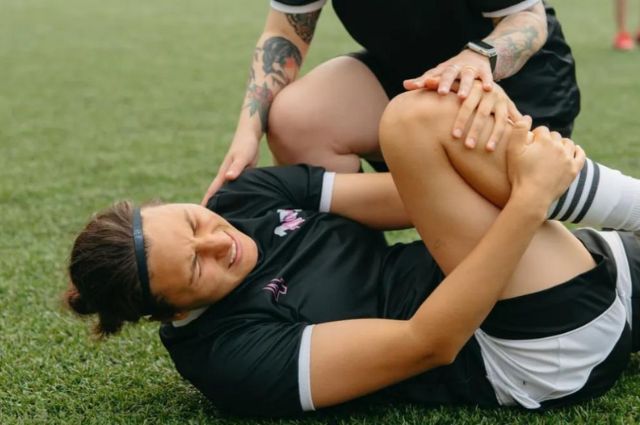Physiotherapy
Physiotherapy plays a crucial role in sports injury rehabilitation, helping athletes recover from injuries, regain strength and mobility, and return to their sport safely and at peak performance. Here’s a brief description of how physiotherapy is utilized in sports injury rehabilitation:

- Assessment: The first step in sports injury rehabilitation involves a thorough assessment by a physiotherapist to diagnose the extent and nature of the injury. This assessment may include evaluating the range of motion, strength, flexibility, and functional limitations.
- Individualized Treatment Plan: Based on the assessment, the physiotherapist develops a personalized treatment plan tailored to the athlete’s specific injury and needs. The plan outlines goals and the strategies needed to achieve them.
- Pain Management: Physiotherapists employ various techniques to manage pain and inflammation, including manual therapy, modalities such as heat or cold therapy, and therapeutic exercises designed to alleviate pain.
- Rehabilitation Exercises: Physiotherapists prescribe a structured regimen of rehabilitation exercises aimed at strengthening muscles, improving flexibility, and restoring joint function. These exercises are progressively tailored to the athlete’s level of fitness and recovery.
- Manual Therapy: Hands-on techniques, like joint mobilization and soft tissue massage, are used to improve tissue healing, reduce muscle tightness, and restore joint mobility.
- Proprioception and Balance Training: Athletes often undergo specialized training to improve proprioception (awareness of body position) and balance, which helps prevent reinjury and enhances overall stability.
- Sport-Specific Training: As the athlete progresses, physiotherapy incorporates sport-specific exercises and drills to mimic the demands of the sport, ensuring a smooth transition back to competitive play.
- Functional Assessment: Throughout the rehabilitation process, the physiotherapist continually assesses the athlete’s progress and modifies the treatment plan accordingly to meet recovery milestones.
- Injury Prevention: Sports physiotherapists also educate athletes on injury prevention strategies, including proper warm-ups, cool-downs, and techniques to reduce the risk of future injuries.
- Return to Play: The goal of sports injury rehabilitation is a safe and successful return to sports or athletic activities. Physiotherapists work closely with athletes and their coaches to ensure they are physically and mentally prepared to resume competition.
- Psychological Support: In some cases, sports injuries can have psychological impacts. Physiotherapists may provide support and coping strategies to help athletes manage the emotional aspects of their recovery.
Physiotherapy for sports injury rehabilitation is a comprehensive and patient-centred approach that promotes not only physical healing but also the athlete’s overall well-being. The goal is to help athletes recover fully, minimize the risk of reinjury, and optimize their performance in their chosen sport.